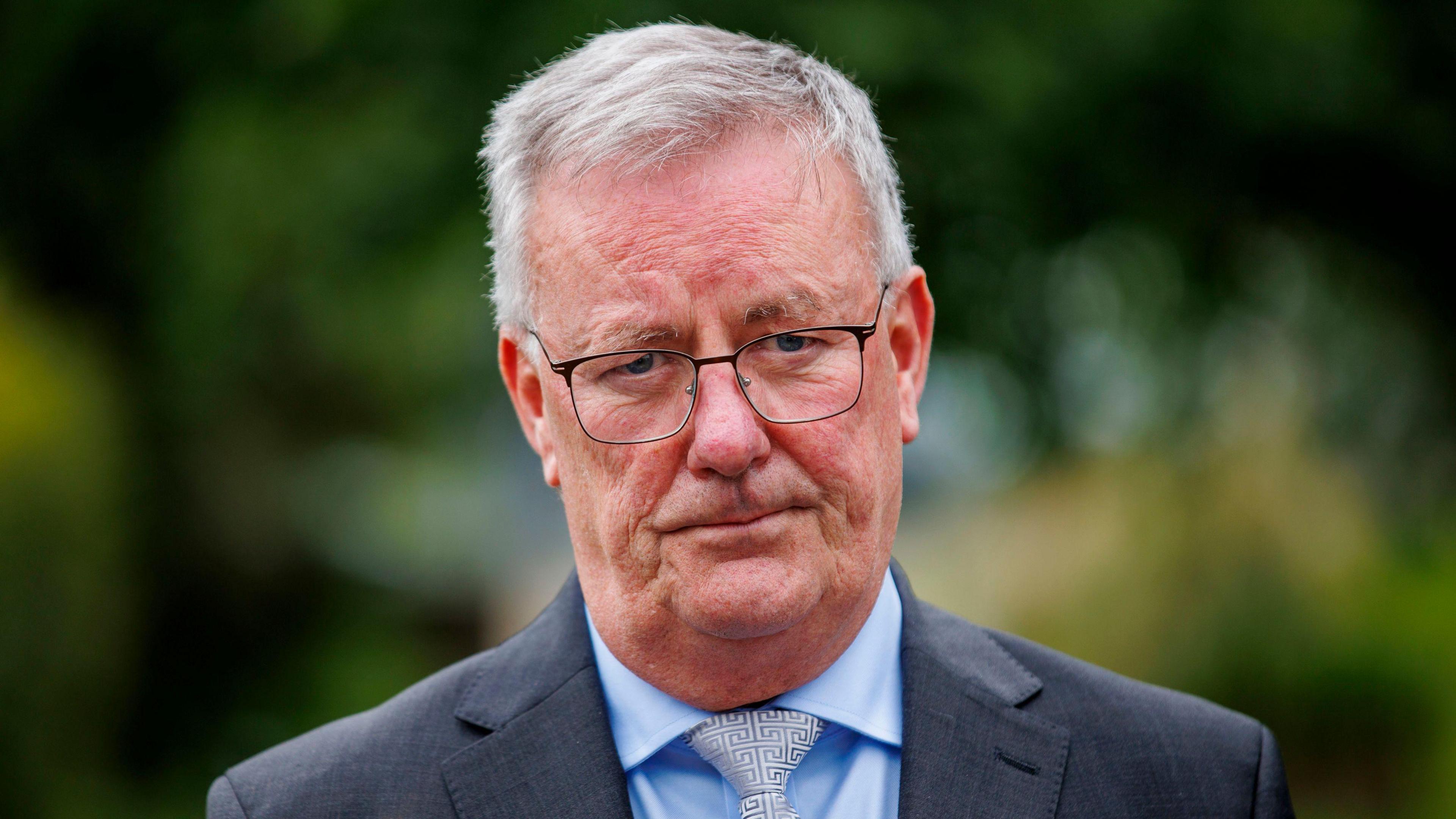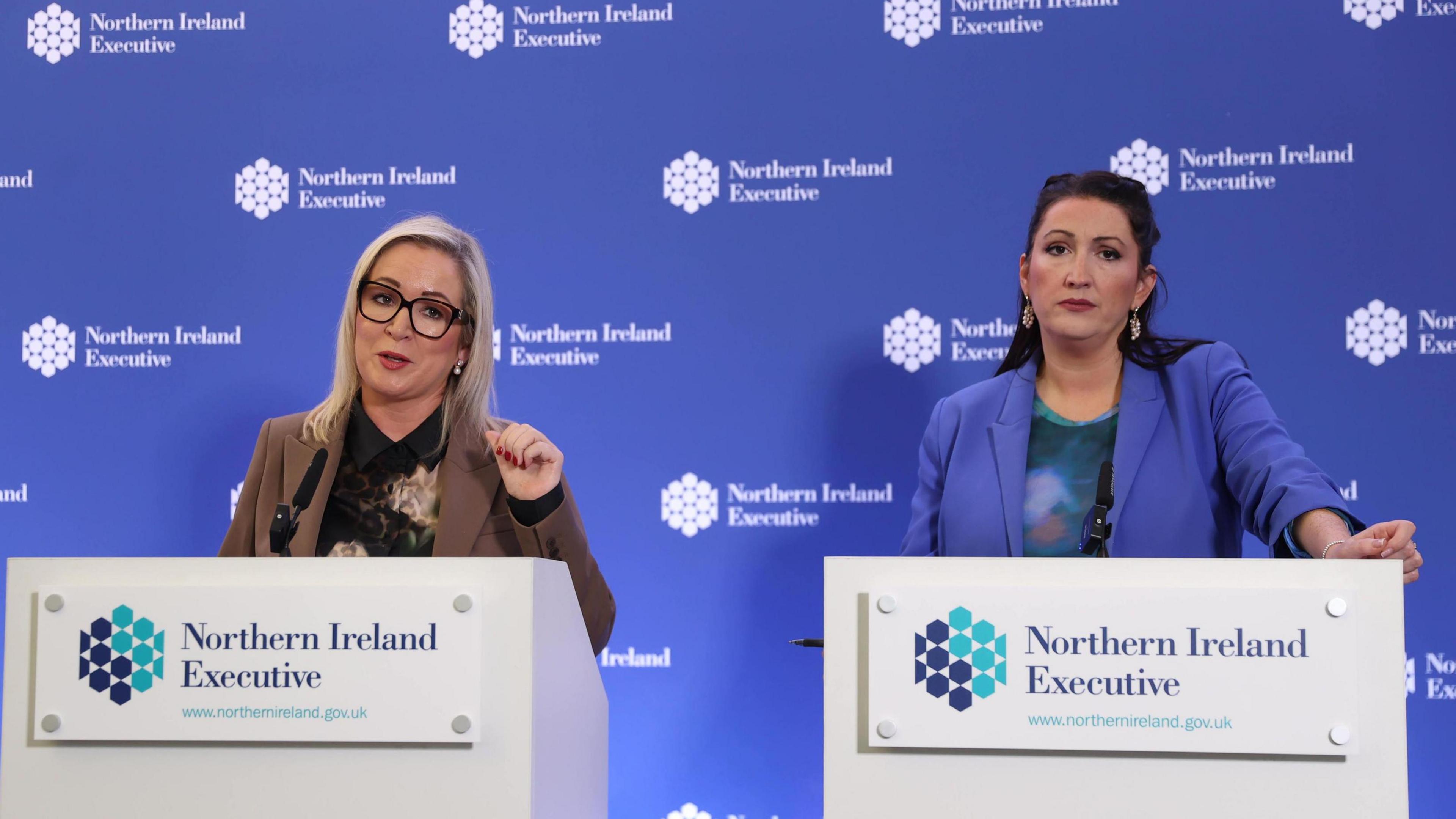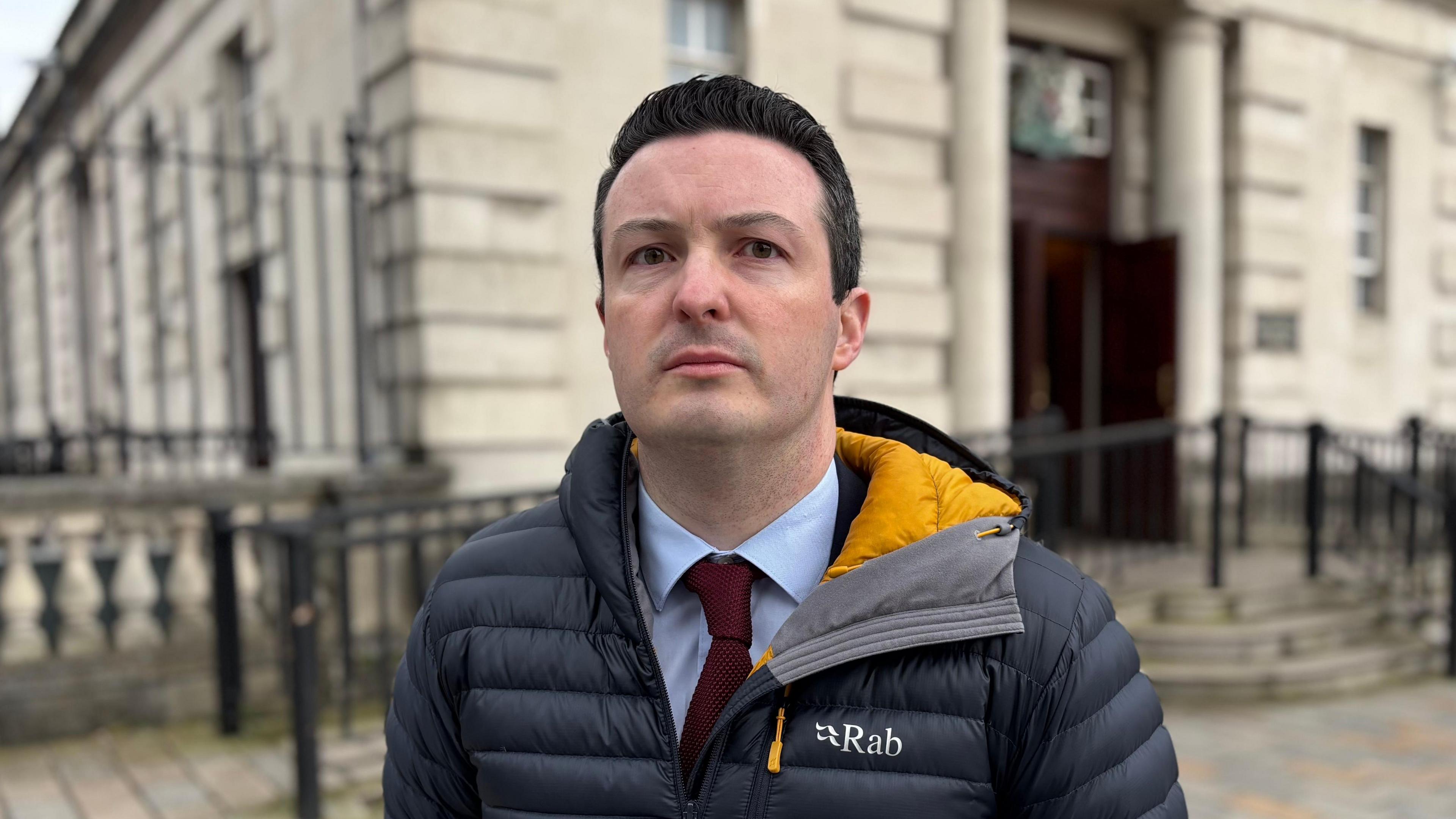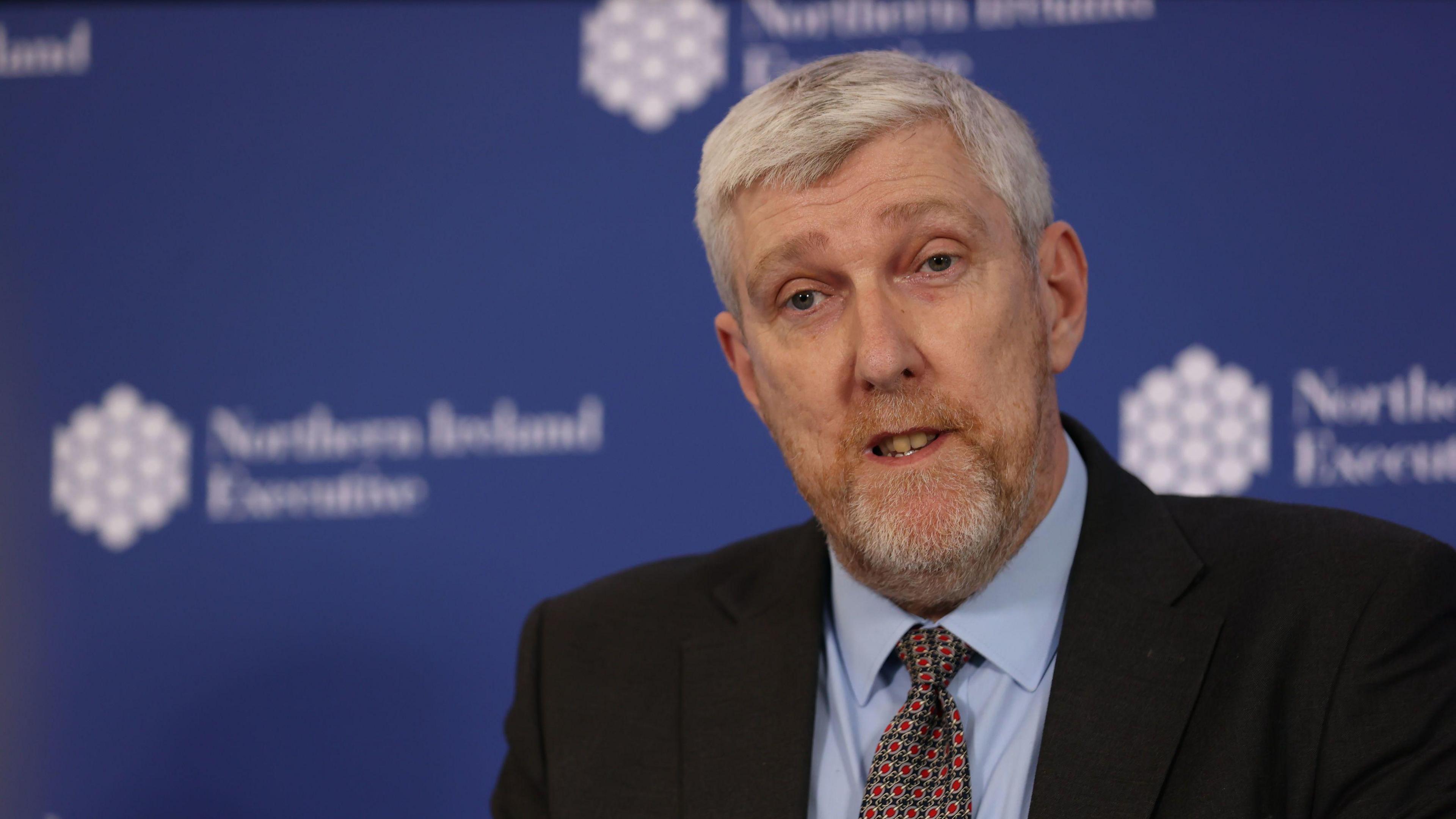Half the money found for NI healthcare workers' pay award, says Nesbitt

In May, Health Minister Mike Nesbitt signed off £200m to go towards this year's pay deal
- Published
Only half of the money needed to resolve a shortfall for a pay award for healthcare workers in Northern Ireland has been found, Stormont's health minister has said.
It contradicts earlier remarks by First Minister Michelle O'Neill that Mike Nesbitt had "found" £100m to help resolve the dispute, with the executive agreeing on Thursday to put the other half required - £100m - towards it.
The ongoing delay over this year's pay awards had prompted nurses to consider strike action.
Nesbitt said while the additional £100m from the executive was "welcomed", his department is still working to find the rest of the funding.
Health minister 'exploring every angle'
In a statement issued on Thursday afternoon, the minister said: "My department is exploring every angle to try and meet the deficit and discussions with health unions and professional bodies are at a sensitive stage with work continuing at pace to try and find a workable solution."
The ministers also announced an extra £37m had also been made available towards pay for teachers.
The first minister said there was now a "pathway" for Nesbitt to continue discussions with healthcare workers.
"I think we now have a pathway in terms of being able to deal with the health pay issue, and I think it's a positive step forward," O'Neill said.
Deputy First Minister Emma Little-Pengelly said that "we are here to have the back of our hardworking health staff".
Health worker pay is a devolved matter in Northern Ireland.
In recent years, health workers have engaged in strike action over failure to implement the annual pay award in line with other parts of the UK.

The first and deputy first ministers held a press conference on Thursday
In May, Nesbitt signed off £200m to go towards this year's pay deal, but finding the money for it required support from other executive ministers.
The delay prompted the Royal College of Nursing (RCN) in Northern Ireland to begin the process of balloting members for strike action.
Little-Pengelly said the executive had been "very clear that it is essential that public sector workers are paid appropriately".
She described how they also wanted to look at wages for other public sector staff, such as police officers, prison staff and transport workers.
The minister said that "people should not have to fight for fair pay" and it was "something we are determined to try to resolve".

Unison's John Patrick Clayton hopes today's development will lead to pay parity
John Patrick Clayton, of the Unison trade union, said the "devil is in the detail around things like this".
"We're going to need to see precisely what that translates into, whether that can actually match the expectation that is there from our members that the bare minimum that they're entitled to is pay parity," Mr Clayton said.
"So will this actually lead to us achieving pay parity? That's what we're going to need to interrogate much further with the minister and with officials."
Justin McCamphill, national official with the NASUWT union, has welcomed the extra £37m being made available towards pay for teachers.
"This news is welcome. Of course we don't know what the full impact of that's going to be on the teachers' pay negotiations but it's welcome that the executive are prioritising pay," Mr McCamphill said.
"We are delighted for our colleagues in health who have waited even longer than teachers, that they're seeing some light at the end of their tunnel and we hope that we'll be in a position soon where teachers will be able to have a decent pay offer."
Mr McCamphill said the union's next step is to get back into a room with employers and the Department of Education to "see if we can reach a pay settlement that teachers in Northern Ireland will find satisfactory".
The RCN had called on the Northern Ireland Executive to act immediately and to avoid plunging the health service into further disruption.
Related topics
- Published30 September

